
 Flash News
Flash News
The body of a 29-year-old man in Klos is found after 6 days
Arrested a few meters from SPAK, the Special Prosecution seeks 17 years in prison for the drug 'boss'
Giro D'Italia starts today, here are the road axes that will be blocked in Tirana from 13:00-18:00
Who is the new Pope?
Pope Leo XIV greets the faithful for the first time in St. Peter's Square

Alfred Lela
The Russification of Albania, the danger from Vladimir Putin's geopolitical hemisphere, is not so much the influence of hard or soft power as it is a general silencing of consciousness, anesthesia over thought itself. And responsiveness, which makes people feel and appear apathetic and disinterested. Sometimes even annoyed and nervous by those who think differently, speak differently, and act differently.
Someone calls it the dictatorship of relativization, another penetration of power, others low community awareness. However, I think this state of society is the most filo-Russian thing. It is the general numbness of that type of society, which even chews on the invasion of Ukraine as a daily chronicle, like the derailment of a train on the St. Petersburg-Moscow line. Or the opposition leader, whom Putin pursues, imprisons, or poisons, it sees only as an accessory and not as a fact that gives free societies substance or explains its absence. Elements such as Alexey Navalny, Pusssy Riot, Anna Politkovskaya, and so on are only distractions that make the Kremlin's golden dome of political and financial power shine even brighter in their darkness. So they're not there as one side of the spectrum but as a rudiment that the free societies of the West sprinkle on Russia. Some non-material provocations not allowed to turn into anything more than that.
The position that the society trained by those in power has towards these elements is some sort of democratic skirmish: you can exist, but with our permission. You see this awareness taking place in Albania as well. In some media-political-social circles, the reaction to the opposition's positions and recently to the February 11 protest is a kind of 'Russian shock'. Suppose we put social apathy aside and deal with the wonder of those who share the media debates with the public, teaching the public precisely in apathy. In that case, we will find that these 'Russians' of today are 'Danes' of the past.
But what is the February 11 protest in a synopsis? It is the opposition's reaction to the publication of stubborn facts in the American Department of Justice indictment, where Prime Minister Rama and people close to him figure as main characters, as saboteurs of the internal political process. As it turns out, one of the heads of the FBI was encouraged and paid to investigate Rama's political opponent. Everyone can ask: were there the same methods used on the non-grata for the president of the DP, Sali Berisha? Americans in their justice system convict or acquit defendants based on evidence that is within or beyond 'reasonable doubt.' Can we reasonably doubt that the Democratic Party has been hit hard by removing the platform of open competition from under its feet?
Should the Democratic Party stand up and address this injustice? Of course. Not only for the case itself but also for the relationship that this case builds with the 'causes' that the previous opposition presented to call the people to the square and protest against the government. Take, for example, the protest of January 21, 2011. "The opposition people" were called in front of the Prime Minister's office, in the words of Rama, "even to overcome the opposition," that is, to do violence for a video where two ministers of the government of the time appeared. Were they talking about a possible bribe of 700 thousand euros? Should the people protest if its high officials are corrupted with 700 thousand euros? Of course. Accepting this standard, what should people do today?
Those surprised by the February 11 protest have a problem with the opposition, understandably. But the biggest problem they have is with themselves. Their clumsiness may come from proximity to power, a long tradition of submission, or a matter of character. In all cases, they are a ready troop for the Russification of Albania. A country that permits the opposition...just to be around.
Latest news

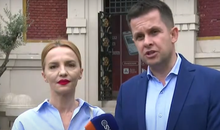

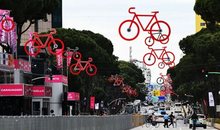

Rama's fourth act: between Brussels and the Mafia
2025-05-09 12:12:47
The body of a 29-year-old man in Klos is found after 6 days
2025-05-09 12:01:27
Berisha: After May 12, this opposition will become the majority in Albania
2025-05-09 11:52:37
Leo XIV celebrates his first Mass as Pope
2025-05-09 11:42:34

Spaho denounces: SP candidate in Pogradec gives 100 thousand lek for the vote
2025-05-09 11:27:26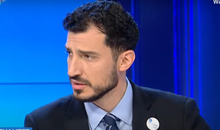
Mustafaj: Proud of the worthy campaign of the DP
2025-05-09 11:22:20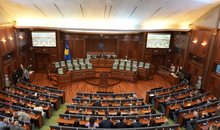
Constitution fails again, Kosovo still without a new Assembly
2025-05-09 11:06:55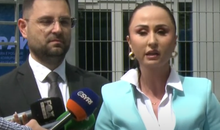


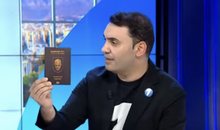


"Votes have no price", the US embassy in Tirana 'slaps' Rama
2025-05-09 10:06:49

Two young men arrested for supplying criminal groups with firearms
2025-05-09 09:45:19




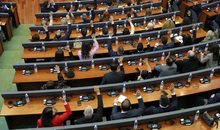


Foreign exchange/ How much foreign currencies are bought and sold today
2025-05-09 08:19:18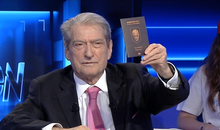
The gift that Berisha gave to Rama 'live'
2025-05-09 08:13:51
3 signs that show you are spiritually protected
2025-05-09 08:05:39

Bars can't hold back anymore, start increasing coffee prices, 4.7% more in April
2025-05-09 07:46:49
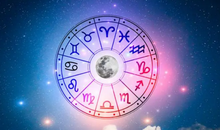
Horoscope, what do the stars have in store for you today?
2025-05-09 07:22:06
Unstable weather, afternoon brings rain
2025-05-09 07:01:29
Morning Post/ In 2 lines: What mattered yesterday in Albania
2025-05-09 06:45:46

How did LaCivita change the DP campaign? Berisha: He studied the opponent
2025-05-08 22:49:51

David defeats Goliath
2025-05-08 22:15:50

Journalist: There are SPAK infiltrators in party headquarters
2025-05-08 21:55:15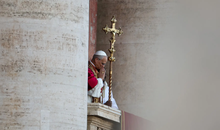
Who is the new Pope?
2025-05-08 21:48:13
Berisha finally reveals when he will retire from politics
2025-05-08 21:33:46


LaCivita in Lezha: Albanians will fire Edi Rama from his job
2025-05-08 21:11:20
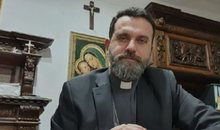
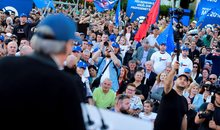
Berisha: LaCivita chose us because he believes in Reagan's program
2025-05-08 20:48:40
He rejected America to serve Pogradec, Genti Çela tells about life in "Elevate"
2025-05-08 20:26:28



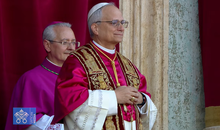
Pope Leo XIV greets the faithful for the first time in St. Peter's Square
2025-05-08 19:29:33




Photo session with LaCivitta in Tirana: For Great Albania
2025-05-08 18:40:18
Source: DASH decision a personal victory for Berisha
2025-05-08 18:30:10
Take off those crazy glasses and see where you've taken him?
2025-05-08 18:02:47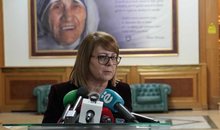
LDK files criminal charges against members of the incumbent Government
2025-05-08 18:02:00

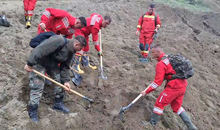
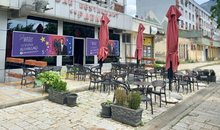



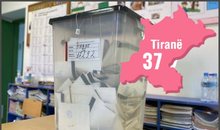
BIRN analysis: Tirana, the determining district for the future majority
2025-05-08 16:04:03




Chris LaCivita's contract with the DP, Berisha: 100% correct and clean
2025-05-08 15:11:11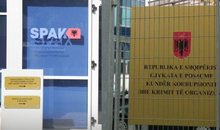
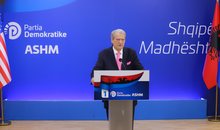
"These are the peak days", Berisha reveals when he will travel to the USA
2025-05-08 14:45:25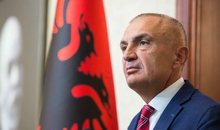


Endless boxes with filled-in ballots, DP demands separation of votes from Greece
2025-05-08 14:11:12

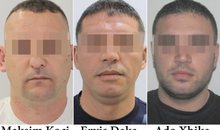
Photo/ Who are the 3 associates of Talo Çela arrested in Dubai?
2025-05-08 13:37:09
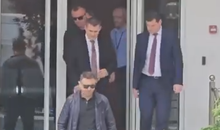
Hetimi për krimet zgjedhore, Altin Dumani zbarkon në Prokurorinë e Shkodrës
2025-05-08 13:06:21
DASH paves the way for Berisha, Alizoti: Great news on the eve of Great Albania!
2025-05-08 13:03:48
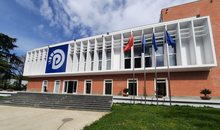
"Freedom works", DP welcomes the US position
2025-05-08 12:48:07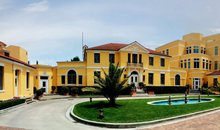
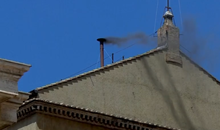
Black smoke rises from the Sistine Chapel, the Vatican still without a Pope
2025-05-08 12:26:18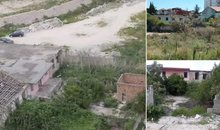




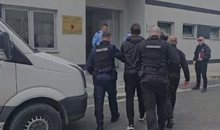
Davide Pecorrelli extradited to Albania
2025-05-08 11:29:04
'May 11, Albania will react', Xhaferri: Electoral criminals will pay
2025-05-08 11:21:46
